Pasquale M. Marino, lovingly called Mimmo for short, is our distinguished Farm botanist, ecology expert and modern Renaissance man who can do so many things well. We interviewed him to find out what fuels his passion for plants, organics and Sicily!
Tell us about your education in the plant sciences and agriculture. What Universities did you study at and what degrees did you receive?
Mimmo: “I graduated from the University of Palermo in Agricultural Sciences. I obtained a PhD in Systematic Botany and Phyto-Geography in Catania, and a PhD in Plant Biology and Biodiversity in Palermo. I also received a master's degree in marketing of agri-food products from the University of Parma.
That’s quite an illustrious academic background. Can you touch upon some highlights of your work experience as well?
Mimmo: “After my first studies, I worked for an agricultural engineering firm in Sicily, where I helped build about 150 companies while continuing my studies and research on the side. Several years later in 2001, I taught at the Ministry of University in Botanical Sciences and Applied Botany. I spent 12 years at the University of Palermo as professor and researcher. I am frequently asked to consult by public bodies, which allows me to study Sicilian flora and Monumental Trees, in Parks and Natural Reserves, and to identify unknown species and endangered plants. I am a member of the Italian Botanical Society, a non-profit scientific association. And in 2011, I won the "Italian Botanical Society Award” for the best PhD thesis.”
What made you want to become a botanist?
Mimmo: “It all happened by chance, actually. After I received a high school diploma in electronics and computer science, I enrolled in a university course on electronic engineering. During that semester, I met up with a friend who was studying at the University of Agricultural Sciences. He showed me a book he was carrying on plant biology. The material was so fascinating to me that it altered the course of my life.”
We know you have a deep interest in plant ecology and the landscape of Sicily. We would love to hear more about that.
Mimmo: “Sicily is basically a small continent, a meeting point between two continental plates -- African and European -- from millions of years ago. You pass the sea on the way to Mt. Etna, Europe’s highest active volcano at 3300 meters above sea level. Sicily is an extraordinary place for those who want to try their hand at natural science studies. There are over 3800 species of flora and over 40 varieties of olive trees. Ecology studies connections in plant communities through a branch of science called phytosociology and looks at the evolution of plants through a branch of botany called phytogenesis. In Sicily, you see a tremendous variety of different plants, in comparison to other environments that do not have the same natural wealth. The local flora had to adapt to stressful climate conditions in Sicily, which made them evolve into wildly potent plants as a result.”
Why is it important that La Furtuna farm be organic and why does the value of organic certification transcend a mere label?
Mimmo: “An organic farm gives new generations the opportunity to enjoy genuine food and the variety that biodiversity offers. Organic certification ensures that the land will thrive into the future. The mission of the Farm is to create value that is handed down for generations. The farm has been developed according to these ethics and it is a continuous evolution in this direction. There are "certified organic" places in large metropolises but our farm is in a virtually uncontaminated territory that we seek to preserve. We are fortunate to have neighboring farms that are also organic so there is no contamination.”
Why do you grow plants in communities on La Furtuna Farm?
Mimmo: “It is important that plants grow together because they give each other mutual support and strength. Scientific studies on plant communities reveal that there are exchanges between plant roots that serve as communications between plants.
Who knew plants communicate! Can you tell us more about these fascinating plant relationships?
Mimmo: “Almost all the plants on the Farm have interactions with each other. In the Mediterranean community, there are over 200 botanical species that coexist in the same restricted environment.”
What are some of the sustainable agricultural practices on the farm? Are you doing anything to lower carbon footprint?
Mimmo: “Some of our sustainable methods include crop diversity, a wind farm, a natural fertilization system based on bacteria, not chemicals. A lot of work on the farm is done by hand, from foraging to planting. In general, a certified organic cultivation has a very low environmental impact.”
How do you harvest the botanicals in such a way that you respect and protect the natural ecosystem?
Mimmo: “Harvesting is done by hand with great attention paid to preserving the plant itself and the plants of the community. During a harvest, plants are not damaged and roots are not eradicated, so that these botanicals can continue to live naturally.”
Can you walk us through the different landscapes and micro-climates of the Farm?
Mimmo: “The Farm covers about 300 hectares. It ranges from 700 to 1400 meters above sea level and the orographic diversification is impressive. There are two bands: 1.Thermo-Mediterranean band, where olive and deciduous trees grow. 2. Meso-Mediterranean and Mountain belt, where evergreen oaks grow. There are local microclimates, aquatic plants, streams, wetlands or puddles, where the Equisetum horsetail plant grows.
We know you are all about biodiversity, but do you have a favorite plant and why is it so special to you?
Mimmo: “My favorite is Anchusa azurea. The flower bursts into a beautiful blue color, which in nature is so rare to find. Blue in nature usually denotes the presence of powerful antioxidant substances. Anchusa is an extraordinary flower because of its coloration and strength. It is a healing medicinal flower with an ancient past and the highest antioxidant activity of any wild edible Mediterranean plant. You can discover it walking along the paths of the Farm.
What other Farm botanicals are you excited about?
Mimmo: “In addition to Anchusa azurea and of course, Olea europaea (the olive), another botanical is Achillea ligustica, a flowering plant found in the higher parts of the farm. Achillea has a gorgeous sky blue color and produces a bright aromatic essential oil with potent benefits for skin. Rich in azulene and antioxidants, it is emollient, nourishing and protective. It is another amazing medicinal plant, used since ancient times to heal wounds thanks to its anti-inflammatory and antimicrobial powers.”
Tell us about the exceptional air purity and water quality on the Farm and how this enhances the organic nature of the ingredients.
Mimmo: “The Farm is far from the highroads and industry. The water is pristine here because it has many natural sources of uncontaminated water. Country air is pure, clean and unpolluted so air quality is excellent. Human pollution is distant from our land. Surrounding areas of the Farm are also managed according to biological criteria. 70% of the Farm is located in a designated area of conservation that provides protection for birds and habitats (under the EU Birds and Habitats Directives, Natura 2000 Network). We have done "environmental remediation" in some locations, removing invasive or noxious weeds and non-native plants, carelessly imported by man over the centuries. In Europe, there is a black list of plants considered bad weeds that we go by. We have also taken steps to remove old wooden and metal pylons, used to construct transmission towers, which are potentially harmful to health.
As I mentioned, a "biological" company can exist on the outskirts of a large city, or in a location where prevailing winds do not guarantee frequent air exchange. The unspoiled countryside setting of our Farm is very different from urban environments. There are places on our property that have not been touched or tainted by man for centuries. Plants that grow here are pure and their essential substances are uniquely potent and concentrated.”
Can you share an experience on the farm that moved you in some way?
Mimmo: “One day, about three years ago, I discovered an evergreen oak forest on our property. It’s in a secluded area that has an altitude of over 1000 meters so it’s not easy to reach. I found it to be a magical and enchanted place, surrounded by gnomes and fairies.”
What projects on the farm are you most proud of?
Mimmo: “When I first arrived on La Furtuna Farm and saw its diverse collection of plants, I realized that I needed to establish an herbarium foremost. Documenting plants for the herbarium initiative enabled me to identify all the different species on the farm. In an effort to preserve Sicily’s biodiversity, I have also done extensive work to save endangered plants from extinction. During my research in Sicily, I discovered a nearly extinct olive tree species, Biancolilla centinara. Thanks to the painstaking care of the University and the Plant Nursery, we have four thousand of these trees on our Farm today. Most recently, I have been working on a project entitled The Widespread Botanical Garden, which was presented in 2017 at the 112th Congress of the Italian Botanical Society in Rome.”
What do you love most about farm life?
Mimmo: “Whenever I am at the Farm, I feel positive, energized and fulfilled. I love what I do and take pride in my work. Spending the day breathing clean air, drinking pure spring water and eating organic in an idyllic setting more than nourishes my body, it renews my soul. I have a deep-rooted appreciation for the farming lifestyle.”
When is your favorite time of the year on the farm?
Mimmo: “Springtime! I am a fan of blue skies and have been known to take lots of heavenly pictures!”
What do you love about Sicily?
Mimmo: “I love the diversity of Sicily, it’s been the crossroads of cultures throughout history and today it’s a wonderful fusion of styles. And Sicilian seafood dishes are the best. Molto delizioso!”

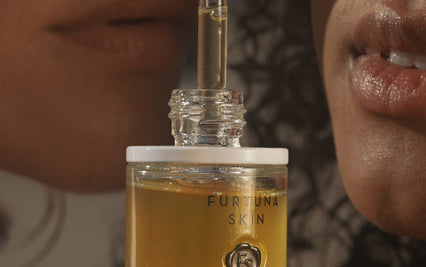


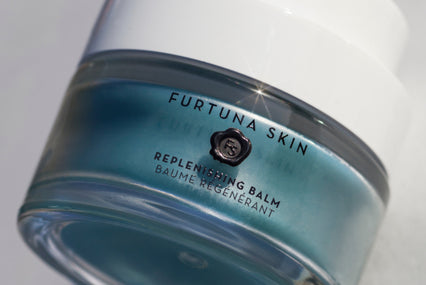
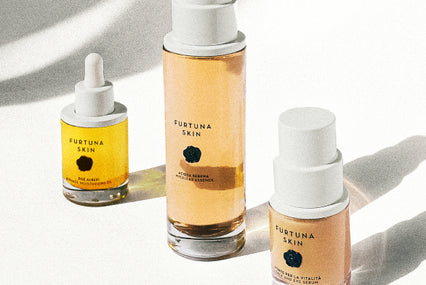
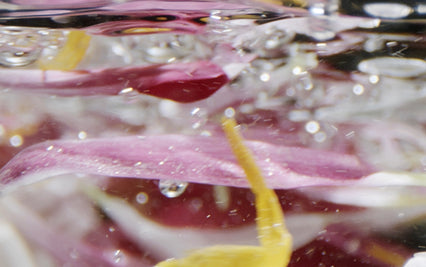
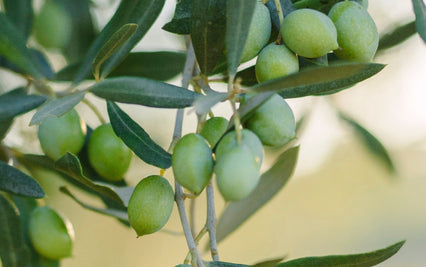



Comment
1 comment
A beautiful story about someone’s passion for purity on all levels.